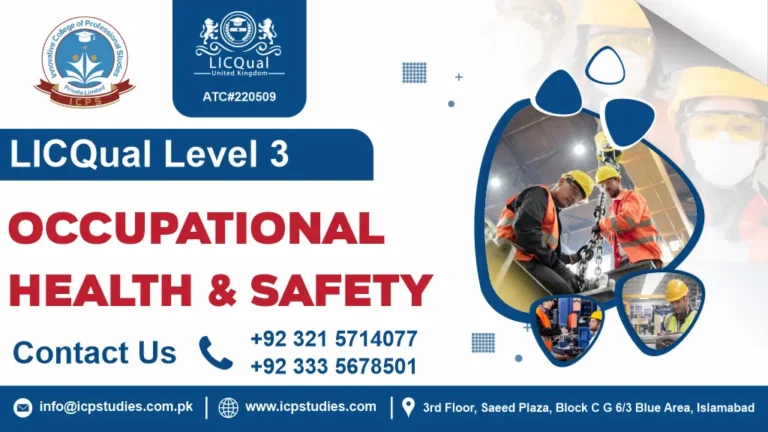In today’s competitive and regulation-driven environment, the ability to ensure conformity with established standards is more critical than ever. The LICQual ISO/IEC 17000:2020 Conformity Assessment Lead Auditor programme has emerged as a significant qualification for professionals involved in auditing conformity assessment bodies and schemes. This blog explores the importance, scope, and benefits of becoming a certified lead auditor under this standard.
ISO/IEC 17000:2020 is an international standard that lays down fundamental principles and terms used in conformity assessment. It provides the vocabulary for all activities associated with determining whether products, services, systems, or personnel meet specified requirements. The standard serves as the foundation for various sector-specific conformity assessment standards, ensuring uniformity and credibility across industries.
The LICQual ISO/IEC 17000:2020 Conformity Assessment Lead Auditor qualification is a strategic asset for professionals involved in quality assurance and regulatory compliance. It empowers individuals with the tools, knowledge, and authority to lead audits and drive continual improvement in conformity assessment processes. As industries increasingly rely on competent auditors to ensure compliance and integrity, investing in this certification can significantly enhance professional growth and organisational excellence.
All About LICQual ISO/IEC 17000:2020 Conformity Assessment Lead Auditor
Course Overview
LICQual, a recognised global awarding body, offers a specialised ISO/IEC 17000:2020 Conformity Assessment Lead Auditor course designed for professionals seeking to lead and manage audit teams. The course focuses on equipping participants with advanced auditing skills, a deep understanding of the standard, and the ability to evaluate conformity assessment bodies against ISO/IEC 17000 requirements.
Participants are trained to plan, conduct, report, and follow up on audits effectively. The programme covers both theoretical knowledge and practical application, making it ideal for aspiring and existing auditors, quality managers, and regulatory compliance professionals.
Study Units
- Introduction to ISO/IEC 17000:2020 Conformity Assessment
- Auditing Principles and Methodologies
- Lead Auditor Competencies and Responsibilities
- Planning and Conducting Conformity Assessment Audits
- Identifying Non-Conformities and Corrective Actions
- Audit Reporting and Follow-Up Procedures
To ensure participants gain the maximum benefit from the LICQual ISO/IEC 17000:2020 Conformity Assessment Lead Auditor course, the following entry criteria must be met:
Minimum Age
Applicants must be at least 21 years of age at the time of registration.
Educational Background
A minimum of a Level 3 qualification (such as A-levels or equivalent) is required. Candidates holding higher education qualifications in fields such as quality management, engineering, science, or business will be particularly well-suited to the course.
Work Experience
A minimum of two years of relevant work experience in quality assurance, auditing, compliance, or a related technical field is recommended. Prior involvement in internal or external audits will be advantageous.
Language Proficiency
As the course is delivered in English, participants must demonstrate proficiency in English language, both written and spoken. Non-native speakers should possess at least an IELTS score of 5.5 or equivalent to ensure they can fully engage with course materials and assessments.
The LICQual ISO/IEC 17000:2020 Conformity Assessment Lead Auditor course is designed for professionals seeking to enhance their auditing competence and lead conformity assessments across various sectors. This course is ideal for:
Career Advancers in the Certification Sector
Professionals aiming to advance their career within certification bodies, accreditation agencies, or compliance-based roles.
Quality Assurance Professionals
Individuals responsible for implementing and maintaining quality systems within their organisation.
Internal and External Auditors
Those currently involved in conducting audits who wish to formalise and expand their auditing capabilities.
Compliance and Regulatory Officers
Professionals tasked with ensuring that products, services, or systems comply with industry standards and regulatory requirements.
Technical Experts and Assessors
Individuals working in testing, inspection, or certification bodies who are involved in the evaluation of conformity assessment procedures.
Consultants and Advisors
Those providing guidance on conformity assessment, certification, or quality management systems.
Management System Practitioners
Individuals with a background in ISO standards looking to develop their skills in leading and managing audits.
Learning Outcomes
Introduction to ISO/IEC 17000:2020 Conformity Assessment
- Understand the purpose, scope, and structure of ISO/IEC 17000:2020
- Define key terms and concepts related to conformity assessment
- Recognise the significance of conformity assessment in global trade and regulatory frameworks
- Identify the various types of conformity assessment activities and their applications
Auditing Principles and Methodologies
- Apply the fundamental principles of auditing in the context of conformity assessment
- Distinguish between different types of audits and audit objectives
- Use recognised auditing methodologies in planning and execution
- Understand risk-based thinking and process-based auditing techniques
Lead Auditor Competencies and Responsibilities
- Demonstrate the skills required to lead an audit team effectively
- Understand the role and ethical responsibilities of a lead auditor
- Coordinate audit tasks and delegate responsibilities within an audit team
- Handle communication and conflict resolution during audits
Planning and Conducting Conformity Assessment Audits
- Prepare comprehensive audit plans based on audit scope and objectives
- Conduct opening meetings, interviews, and document reviews effectively
- Gather objective evidence through observation, questioning, and sampling
- Apply time management and resource planning during audit activities
Identifying Non-Conformities and Corrective Actions
- Recognise and categorise non-conformities based on evidence and criteria
- Accurately document non-conformities with supporting data
- Recommend appropriate corrective actions and follow-up procedures
- Evaluate the effectiveness of implemented corrective actions
Audit Reporting and Follow-Up Procedures
- Compile audit findings into structured and accurate audit reports
- Communicate results clearly to auditees and stakeholders
- Conduct closing meetings and present conclusions professionally
- Plan and execute post-audit follow-up to verify corrective actions and continuous improvement
FAQs LICQual ISO/IEC 17000:2020 Conformity Assessment Lead Auditor







